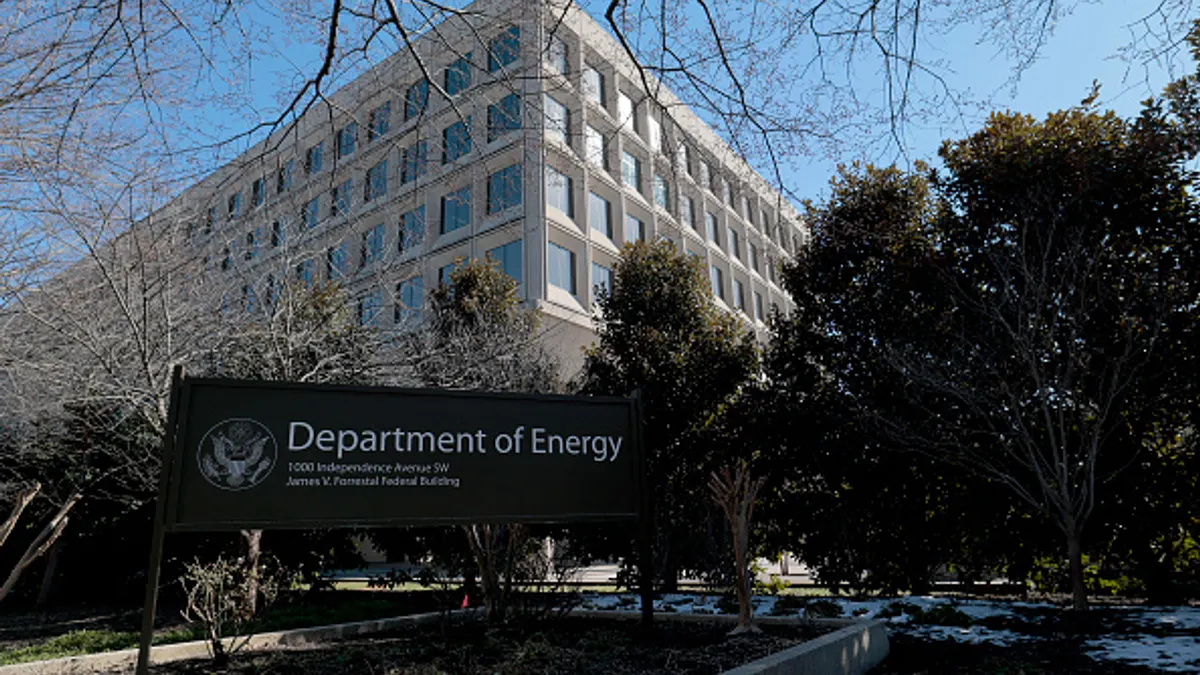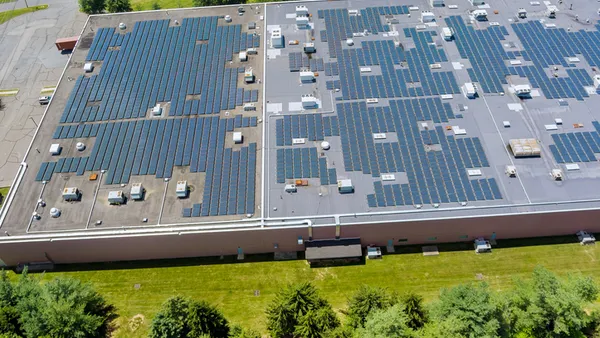Dive Brief:
- Federal agencies constructing new buildings or renovating old ones won’t have to meet energy performance standards required in regulations the U.S. Department of Energy finalized last year, the agency said in a stay published in the Federal Register on May 5.
- “This pause will ensure that our federal buildings are able to utilize the most efficient power available, lowering costs and reducing regulatory overreach,” Secretary of Energy Chris Wright said in a statement.
- The one-year stay is intended to give the agency time to see whether the standards align with an executive order President Trump issued on his first day in office that puts the brakes on renewable resources and sustainability as energy goals.
Dive Insight:
The performance standards were slated to take effect May 1 and included a process for federal agencies to petition DOE to ease the standards for them.
With the stay in effect, agencies that are planning to build or renovate a building are directed not to start the petition process.
“To avoid regulatory burdens that would result if Federal agencies adhered to these guidance documents, DOE will not process petitions for downward adjustment during its review,” the agency says.
The Biden-era standards are intended to reduce the federal government’s reliance on fossil fuels like gas, oil and coal to power its buildings, according to the rules.
“Federal agencies [are] to reduce their on-site use of fossil fuels … consistent with the targets of ECPA and EISA,” says the rule, referring to the Energy Conservation and Production Act and the Energy Independence Security Act. ECPA was passed in 1975 and EISA, in 2007.
Under the standards, how much buildings’ permitted fossil fuels use depends on the type of building, its size, age and other factors.
Trump’s executive order doesn’t say anything about the standards. Rather, it seeks to promote a return to the use of fossil fuels, which he calls reliable and inexpensive.
“America is blessed with an abundance of energy and natural resources that have historically powered our Nation's economic prosperity,” the order says. “It is … in the national interest to unleash America's affordable and reliable energy and natural resources. This will restore American prosperity.”
The shift in priority could slow a recent boom in renewable energy deployment, according to World Resources Institute data.
“Solar deployment … broke records in 2023 and 2024,” the organization said in February. “Renewables now dominate new power generation capacity, while new domestic clean energy manufacturing facilities are popping up around the nation.”
But headwinds are getting stronger, the group said. “With a new federal administration creating roadblocks … it may become even harder to make progress.”














